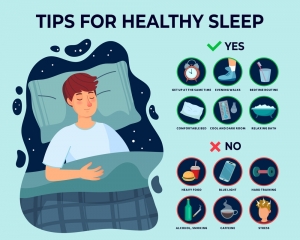First time motherhood is a lovely experience but it also has its own set of challenges. But for some new mothers, it comes with an additional burden, which is postpartum depression (PPD). For a first time mother, learning how to deal with postpartum depression is arguably vital in terms of one's recovery as well as one's overall long-term mental health.
We will explore how the first baby and its best mothers can help manage postpartum depression by covering all aspects, including the scope of early signs, support networks, and daily self-care strategies.
Recognize the Signs and Symptoms Early
Knowing what to look for is crucial for first-time moms. The earlier postpartum depression symptoms are recognized, the sooner they can be managed. Remember, PPD is more intense and long-lasting than the typical “baby blues” that many new moms experience.
If you're feeling overwhelmed, consider reaching out to an anxiety treatment center specializing in postpartum care for proper evaluation and support.
Detailed Symptom Recognition
Postpartum depression affects approximately 1 in 7 women in the first year after childbirth, with symptoms often persisting beyond two weeks of baby blues. While up to 85% of new mothers experience emotional ups and downs, postpartum depression's signs can be more intense, including:

Recognizing these signs early can make recovery faster and smoother, ultimately benefiting both the mother and child.
Importance of Early Identification
Studies show that 50% of new moms with PPD remain undiagnosed and untreated, which can lead to prolonged suffering. For first-time moms, spotting symptoms early is important to prevent symptoms from getting worse and to protect their mental health.
Building a Support System
Once you recognize the symptoms, building a strong support network can make a big difference in managing postpartum depression. Having people you can rely on helps ease feelings of loneliness and stress, both of which can make postpartum depression worse.
Lean on Trusted Individuals
Identify friends, family, and loved ones you trust. Support from a partner, close family member, or even a friend can provide the emotional stability you need. Research indicates that having a support network significantly reduces the likelihood of developing PPD.
Professional Support Options
If your feelings feel too heavy, consulting with healthcare providers, such as an obstetrician, therapist, or an anxiety treatment center specializing in postpartum mental health, can offer structured guidance. Approximately 30-35% of women with a history of mood disorders are more vulnerable to postpartum depression. Professional support can help address this risk early.
Community and Support Groups
For many new mothers, support groups provide the chance to connect with others going through similar experiences. Online groups can be particularly helpful if local options aren't available, as they offer a safe space to share and learn effective coping strategies.
Types of Postpartum Support Systems

Creating a reliable support system is important in dealing with postpartum depression and increasing emotional strength.
Practical Self-Care Strategies
Self-care is not as some people might think is selfish; it is vital. Making a few key practical strategies makes all the differences in day-to-day living and in one's physical and even mental health.
Prioritize Sleep
Depression has many associated risk factors and sleeping is one of them. Nevertheless, for new mothers, sleep may become one of the rare things. Lack of sleep directly impairs the mood and may amplify the symptoms of depression. Try these tips to prioritize sleep:
- Rest when the baby naps, even if it's just for a short while
- Share nighttime responsibilities with your partner
- Create a calming bedtime routine
Research indicates that poor sleep patterns are greatly correlated with PPD, thus making sleep an incredibly impactful self-care treatment.
Nutrition for Mental Health
A proper and well-balanced diet fuels the body as well as the brain. Studies show that delivering adequate nutrition can help stabilize energy and mood, which may assist new mothers who are feeling exhausted or irritable. Include:
- Lean proteins (e.g., eggs, chicken)
- Fresh vegetables and fruits
- Whole grains (like oats and brown rice)
- Omega-3-rich foods (like salmon and walnuts)
Movement and Exercise
Regular physical activity is proven to boost mood. For new moms, light activities like short walks, gentle stretching, or yoga can make a difference. Exercise releases endorphins, natural mood lifters, which can improve outlook and energy.
Prioritize Mental Wellness Routines
Mental wellness routines, like journaling or meditation, can alleviate stress and promote positive feelings. Here's how you can incorporate mental wellness practices daily.
Daily Self-Care Practices
Practices like mindfulness, journaling, or even a few minutes of meditation help maintain focus and calm. By setting aside small amounts of time daily, new moms can reduce stress and stay grounded.
Setting Realistic Expectations
Motherhood, especially the first time, can feel overwhelming. Recognize that early motherhood will have highs and lows, and be gentle with yourself. Studies show that self-compassion is associated with better mental health outcomes, particularly for new mothers.
Identify and Manage Personal Triggers
Triggers like lack of sleep, loneliness, or overwhelming tasks can contribute to feelings of stress and anxiety. Identify situations that affect your mood and set up proactive strategies. For instance:
- If isolation is a trigger, schedule a call or outing with a friend.
- If lack of sleep is a problem, ask your partner to help with night feedings.
Creating a mental wellness routine is one of the most effective ways to maintain balance and avoid burnout.
When to Seek Professional Intervention
Sometimes, self-care and support aren't enough. Professional help can be invaluable if symptoms persist or worsen.
Therapy and Counseling Options
Cognitive Behavioral Therapy (CBT) has been mentioned as one of the choices of treatment approaches for PPD. Its aim is to understand and eliminate the distorted perceptions of mothers, so that they can emotionally respond and react correctly in various situations. There are mothers who benefit greatly from talk therapy, whether it's with a therapist alone or in a group.
Medication Considerations
If therapy alone isn't enough, there are safe medication options for breastfeeding mothers. Always consult with a healthcare provider to discuss risks and benefits. Medication isn't necessary for everyone, but it can be a supportive tool when prescribed thoughtfully.
Knowing It's Okay to Ask for Help
Reaching out for help is a sign of strength. For first-time moms, postpartum depression may feel isolating but know that help is available. Seeking professional support, when needed, is a critical part of recovery.
Postpartum Depression Help for New Moms
First-time mothers do struggle with postpartum depression after giving birth but the good thing is that they would be able to recover with a bit of self care and help. Don't forget, it is not necessary for you or anyone to go through this alone.
Such actions include recognizing the signs, forming a group of friends, checking in on yourself regularly, or asking for assistance when you feel overwhelmed which will certainly make a difference.
Remember to speak kindly to yourself throughout the day, to ask for assistance when necessary, and to take one step at a time in the context of recovery. Both you and your baby should be able to travel safely and happily together. All of these factors point to one conclusion: things will get better soon.
Frequently Asked Questions (FAQs)
How long does postpartum depression last?
Postpartum depression can vary in duration. For some, symptoms improve within a few months with treatment, while others may need longer support. Early intervention can significantly reduce duration and intensity.
What if I'm afraid of taking medication while breastfeeding?
Medication is not always necessary, and many therapies are effective without it. If medication is recommended, healthcare providers can prescribe safe options for breastfeeding mothers.
Are there any preventive steps to reduce postpartum depression risk?
Yes. Preparing a postpartum mental health plan during pregnancy can help, including setting up a support network, planning for sleep, and discussing preventive measures with a healthcare provider.






